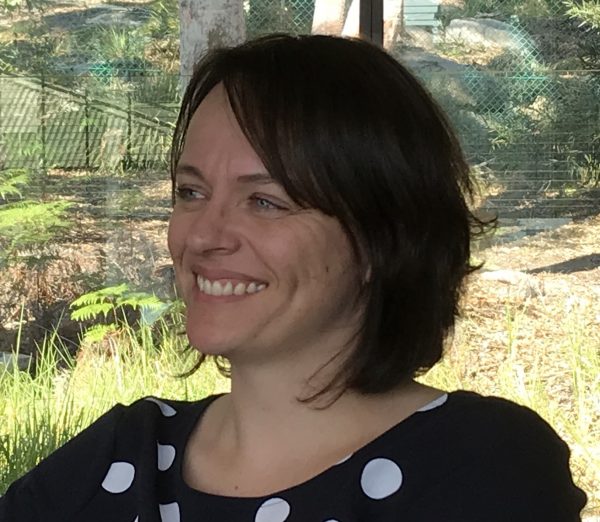Dr Victoria Herrington, a member of the September 2018 Oxford Executive MBA class, reflects on the transformational nature of the programme.
Dr Herrington is the Director Knowledge at the Australian Institute for Police Management (AIPM), a national common police service and peak body for public safety leadership development in Australia and New Zealand. The Oxford EMBA she is studying for is designed to help business leaders to realise their potential alongside their work commitments.
“There is nothing in the caterpillar that tells you it will be a butterfly”
I like to think that Buckminster Fuller and I would have been friends. Fuller once said that “there is nothing in the caterpillar that tells you it will be a butterfly”, beautifully illustrating the challenge – and opportunity – of complexity. The butterfly emerges as the result of a complex interplay between systems. It is unexpected, and yet also inevitable once you understand how the systems work together.
Complex systems – with their unexpected, yet inevitable, outcomes – are at the root of the challenges facing our public and private organisations. Today’s business leaders, whether they work for non-profits, government, start-ups, mega-firms, or family businesses, find themselves impacted by a messy web of interconnected issues. We know that business leaders need to understand the systems in which they and their customers operate to be able to manoeuvre and take best advantage. But as an entrepreneurially minded systems thinker and agitator for social good, I suspect Bucky Fuller would have pushed us to do more than this. I suspect he would have reminded us of the opportunity we have as business leaders to influence, not just respond to, the system. I suspect he would have challenged us to see ourselves as active participants, individually and corporately, with a sphere of influence and responsibility much larger than we might first perceive. And I suspect he would have reminded us that not all systems give rise to the metaphorical beautiful butterfly, and that the role of leaders, and the strategic edge of the organisations that they lead, is to find important problems and fix them.
This spirit characterises, I think, what an EMBA at Oxford is all about. There are hundreds of business schools that will teach you about finance, accounting, operations etc., but very few will combine business acumen with a reminder of the responsibility to have a positive social impact. This may be a reason why corporate social responsibility (CSR) comprises such a depressingly small proportion of the overall scores that makes up the FT EMBA rankings (weighted three per cent, up from and even more depressing zero per cent last year).
Yet the importance of combining business with social impact was writ large for us during cohort S18’s second module, when we were introduced to Peter Drobac and colleagues from the Skoll Centre for Social Entrepreneurship. Peter and his team will be our guides through the Global Opportunities and Threats (GOTO) project – a key piece of group work encouraging us to think and act systemically to progress a complex global problem. It didn’t take too long into Peter’s opening introduction to recognise that I had found my tribe.
As a criminologist and a social scientist interested in how police organisations can better influence the systems contributing to public safety, I recognise that much of what the police are called to at 2am is the result of complex social problems not being dealt with effectively upstream. I recognise too that all along the river, wrapping our organisational heads around complexity can be such a challenge that we revert to single-focus strategies, organisational silos, and staying in our lane. Thinking according to well-worn assumptions about what we can and cannot do is not helpful when tackling complex problems, but we continue to do it because it is easier than bending one’s brain around the hidden and unexpected interconnectivities that seem so far removed from our own locus of control.
Excitingly the GOTO project promises to change this and equip us with the skills to identify key – and perhaps unexpected – nodes of influence that we can work on to shift a larger system toward a more beneficent outcome. The systems thinking approach embedded in GOTO encourages us to embrace diverse ways of thinking and map interconnectivities along with the variety of novel leverage points available. Our project will focus on improving access to clean and affordable energy. A bite sized chunk of the climate change concern. Our conversations saw us ebb and flow, focus and unfocus, zoom in and out, on the contributory issues of geopolitics, energy theft, provision of – and an evolving understanding of what constitutes – basic needs.
Thinking big, messily, iteratively, obliquely is what systems thinking is all about, and our project team embraced this heartily. The energy and chemistry were intoxicating. Over the course of the next four months we will refine our appreciation of the systems involved and how we might most effectively influence change. I have no idea where we will end up, and while I know that the real value lies in the journey our group will take together, not the destination, I am optimistic about our future solution and the impact that it will have.
And that is the thing about an EMBA at Oxford. Not only is one finding important problems and attempting to fix them by drawing on the best and brightest in their fields, there is a real sense that here – more than anywhere else – ideas can lead to transformation. Perhaps it is the history that surrounds Oxford, including the tremendous legacies of former students across all manner of disciplines. Perhaps it is the convening power of Oxford, and a Union and student body that has attracted, heard from, and influenced global leaders for more than 800 years. Or perhaps it is a growing confidence in ourselves as EMBA S18, a mere two modules in but already recognising the power we have within our own organisations, our professions, and our systems, to nudge, prod, and provoke change in myriad ways.
It’s not all big picture thinking on the EMBA of course, and the fundamental skills of business form an important backbone to solving complex problems. You have to know the game before you can change the game after all. Characteristic of the blend between the macro and the micro at Oxford, module two saw us receive our first assignment – a 2000-word paper for our Analytics class. Utilising data analysis, probabilities, and expected outcomes to assist corporate decision making is an important skill for executives. During module two this focus provided a valued counterpoint to our intellectual adventures into energy systems, bringing some of us back down to earth and grounding us in the basics needed to be effective in the stratosphere. It also reminded me – and perhaps other would-be friends of Buckminster Fuller – that even a caterpillar needs to eat leaves before she can fly.
For more information about joining the next class of the Oxford Executive MBA, visit the Saïd Business School website at www.sbs.oxford.edu/emba.









